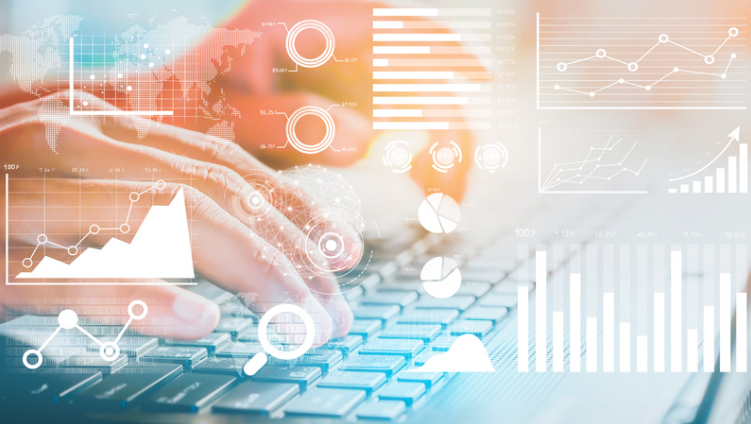Navigating the realm of data can be a complex journey, especially when distinguishing between Data Analytics vs Data Analysis. As a seasoned expert in the field, I’ll shed light on the nuances that set these two disciplines apart. Data analysis involves dissecting information to uncover trends and insights, while data analytics delves deeper into the realm of predictive modeling and forecasting. Understanding the distinctions between these approaches is crucial for businesses aiming to leverage their data effectively. For in-depth insights and tools that can help businesses make data-driven decisions, visit 888starz.co.ke.
Data Analytics vs Data Analysis
Core Concepts
 Analyzing data is about examining information to uncover meaningful patterns. It allows me to understand what the data is trying to communicate by utilizing various techniques to draw insights. Data Analytics vs Data Analysis, I interpret trends, identify correlations, and derive conclusions from the information at hand. By exploring the core concepts of data analysis, I can gain a comprehensive understanding of the data’s significance and implications.
Analyzing data is about examining information to uncover meaningful patterns. It allows me to understand what the data is trying to communicate by utilizing various techniques to draw insights. Data Analytics vs Data Analysis, I interpret trends, identify correlations, and derive conclusions from the information at hand. By exploring the core concepts of data analysis, I can gain a comprehensive understanding of the data’s significance and implications.
In data analysis, I employ a range of techniques to extract valuable insights from datasets. These techniques include descriptive statistics to summarize data, inferential statistics to draw conclusions, and regression analysis to understand relationships between variables. Additionally, hypothesis testing helps me validate assumptions, while data visualization enables me to communicate findings effectively. By utilizing these common techniques, I can enhance decision-making processes and drive innovation within a data-driven environment.
Exploring Data Analysis
Differences in Purpose and Scope
 Analyzing data and performing Data Analytics vs Data Analysis serve different purposes in the realm of data science. Data analysis focuses on examining data to discover meaningful insights, patterns, and trends without necessarily predicting future outcomes. It involves using statistical methods like descriptive statistics to summarize data or inferential statistics to draw conclusions beyond the presented information.
Analyzing data and performing Data Analytics vs Data Analysis serve different purposes in the realm of data science. Data analysis focuses on examining data to discover meaningful insights, patterns, and trends without necessarily predicting future outcomes. It involves using statistical methods like descriptive statistics to summarize data or inferential statistics to draw conclusions beyond the presented information.
On the other hand, Data Analytics vs Data Analysis encompasses a broader scope by not only exploring historical data but also utilizing it to make informed predictions and optimize performance. Data Analytics vs Data Analysis employs advanced techniques such as machine learning algorithms and artificial intelligence to forecast future trends, behaviors, and outcomes based on historical data patterns.
Impact on Business Decision Making
The impact of data analysis and Data Analytics vs Data Analysis on business decision-making processes is significant. Data analysis plays a crucial role in providing organizations with vital information about their operations, customers, and market trends. By uncovering patterns and trends through techniques like regression analysis, hypothesis testing, and data visualization, businesses can make data-driven decisions to improve efficiency, identify opportunities, and mitigate risks.
In contrast, Data Analytics vs Data Analysis empowers businesses to move beyond historical insights and proactively shape their future strategies. By leveraging predictive analytics and forecasting using machine learning models, companies can anticipate trends, customer behavior, and potential outcomes. This proactive approach enables organizations to stay ahead of the curve, optimize processes, personalize customer experiences, and drive innovation in a competitive landscape.
Case Studies and Real-World Applications
Examples in Various Industries
 In various industries, data analysis is revolutionizing how businesses operate. For instance, in retail, analyzing customer purchase patterns helps optimize inventory levels and enhance product recommendations. Similarly, in healthcare, analyzing patient data improves treatment outcomes and enhances personalized care plans. Additionally, in finance, data analysis aids in detecting fraudulent activities and optimizing investment strategies. These examples highlight how data analysis drives informed decision-making across diverse sectors.
In various industries, data analysis is revolutionizing how businesses operate. For instance, in retail, analyzing customer purchase patterns helps optimize inventory levels and enhance product recommendations. Similarly, in healthcare, analyzing patient data improves treatment outcomes and enhances personalized care plans. Additionally, in finance, data analysis aids in detecting fraudulent activities and optimizing investment strategies. These examples highlight how data analysis drives informed decision-making across diverse sectors.
Success stories in Data Analytics vs Data Analysis emphasize its transformative impact on businesses. For instance, a leading e-commerce company utilized predictive analytics to forecast customer demands accurately, leading to a significant increase in sales. Similarly, a healthcare provider used machine learning algorithms to identify early signs of diseases, improving patient outcomes. These success stories underscore the importance of leveraging data analytics tools to gain actionable insights and stay competitive in today’s data-driven world. By learning from these experiences, businesses can adapt best practices and strategies to drive growth and innovation.


